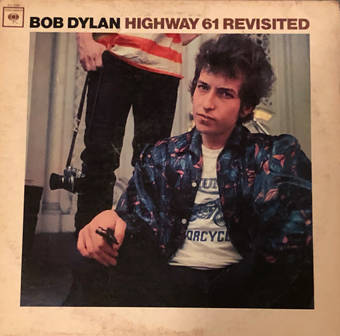By Morf Morford
Tacoma Daily Index
2020 was a watershed year in many ways.
There were things we took for granted, even defining features of our lives, at the beginning of the year, that by the beginning of 2021, seemed to drift off into insignificance.
Yes, COVID and politics roiled and disrupted every headline and conversation and up-ended many friendships, but beyond the noise and endless disputes, our culture was making irreversible moves.
Like a glacier, this movement was as unnoticeable as it was inevitable.
Few of us have work schedules that even vaguely resemble what we took as “normal” just a few months ago. Our incomes have shifted, our driving habits are different, our tastes in entertainment have tilted toward, and away from, unexpected areas.
A generation ago music defined a generation. Young people spent every spare dollar on records. Concerts and music festivals were the defining cultural features.
Records, then cassettes, and finally compact discs were the coin of the realm when it came to cultural expression and identification.
Music was refuge and inspiration. Our collections of what became known as physical media represented our values and ideals.
Concerts became near-religious experiences, with some fans following bands across the country, if not around the world.
So-called “Dead-heads” pioneered this idea as a roving cultural presence. “Rock and roll is here to stay” was a theme, if not an article of faith for more than one generation. We all, from record company executives to teenagers, assumed that music, like oxygen, was essential to life.
Public (like concerts) or private (at home or with earbuds) music, to some degree, was everywhere.
Until it wasn’t.
We lost our fascination with “physical media.” Streaming music had nowhere near the quality, the depth of message or the unifying force music had held for more than half a century.
The “vinyl revival” emerged as a very select audience pored over collectible vinyl records and marveled at the many textures of tone and range that streaming could never match or even begin to mimic.
Music as a cultural force had dominated for decades. What could ever replace it?
Was it even possible to replace it?
Few things, if any, are as core to humanity as music. Babies, we’ve been told, have probably experienced singing before they talk, and dancing before they walk.
Anthropologists, parents, and teenagers around the world would all agree that music had been around, and would be around forever.
If anything replaced music, most of us would have assumed it would be social media. (Remember those days when Boomers warned young people to untag every Facebook photo of themselves having a beer at a party in college because they’d never get a job and then Facebook live-streamed themselves storming the Capitol in Washington D.C. or a local state capitol? Facebook was the social media preference of Boomers; Gen X, Millennial, and Gen Z used Instagram and Snapchat. But whatever the platform, for legal purposes, and for years to come, those images are out there.)
For a time it looked like Facebook, even MySpace, would dominate youth, if not all, pop culture.
And in times of COVID, for better or worse, (mostly worse, I think we would all say in retrospect) many of us turned, some obsessively, to social media – until it segregated into tribes and factions – each one more rabid and irrational than the one before.
Then, at least in some circles, social media evaporated or had new (or at least newly enforced) “terms of service.”
There were complaints from some about censorship and claims of “freedom of speech.”
Freedom of speech is, of course, related to government restrictions – not those of venues or social media platforms. When you click the terms of service box, you agree to comply to the guidelines. It’s a very simple legal agreement.
When it comes to “censorship,” who imagined that there would be restrictions, even laws, regarding killing public officials, destroying government property and instigating revolution?
Or that social media platforms might not want to be a party to such actions?
In the fracas, like a messy mob brawl, every participant looked bad – even pathetic.
Maybe MySpace was the leading edge of social media – and leading all of us into an embarrassing (and not just our photos) set of associations we’d rather not recall – or be reminded of.
The “right to be forgotten” became a legal pursuit. After we’ve died, do we want our images and words to die with us or linger and shame us even more a decade or more from now?
It’s a strange, but oddly compelling argument.
And leads us to the most likely candidate for social cohesion, entertainment and escape – video games.
Somehow when adults weren’t looking, something strange happened – video games snuck in. And took over.
The gaming industry’s revenue (at $139 billion a year) has surpassed the NFL, NBA, MLB and NHL combined.
Gaming, in many ways, is the opposite of the music scene we have known and loved for decades.
Music venues, from clubs to concert halls, were once the places youth movements found their foundations and core identities – Boomers in rock clubs, Gen Xers in grunge bars, Millennials in warehouses – Gen Z meets up with friends online.
Gamers are alone, yet never alone.
Some of the differences between all these media is that some are active (as in dancing) while others are passive (listening to music at work for example), some are public (like concerts and festivals) while some are private and individual (like a personal CD or record collection).
Gaming, at least for now, seems to be taking over. https://www.theguardian.com/commentisfree/2021/jan/11/video-games-music-youth-culture?
Concerts, festivals and the club scene, thanks to COVID, are essentially non-existent, and leave a cultural vacuum ideal for gaming to fill.
Will gaming define the 2020s?
Gaming, like music, is defining a generation.
Parents warned young people about rock music, told their kids not to stand too close to the television, and had dire warnings about social media.
You can expect hand-wringing about gaming as well.
And you never know, we just might see a new version of the “vinyl revival.”





